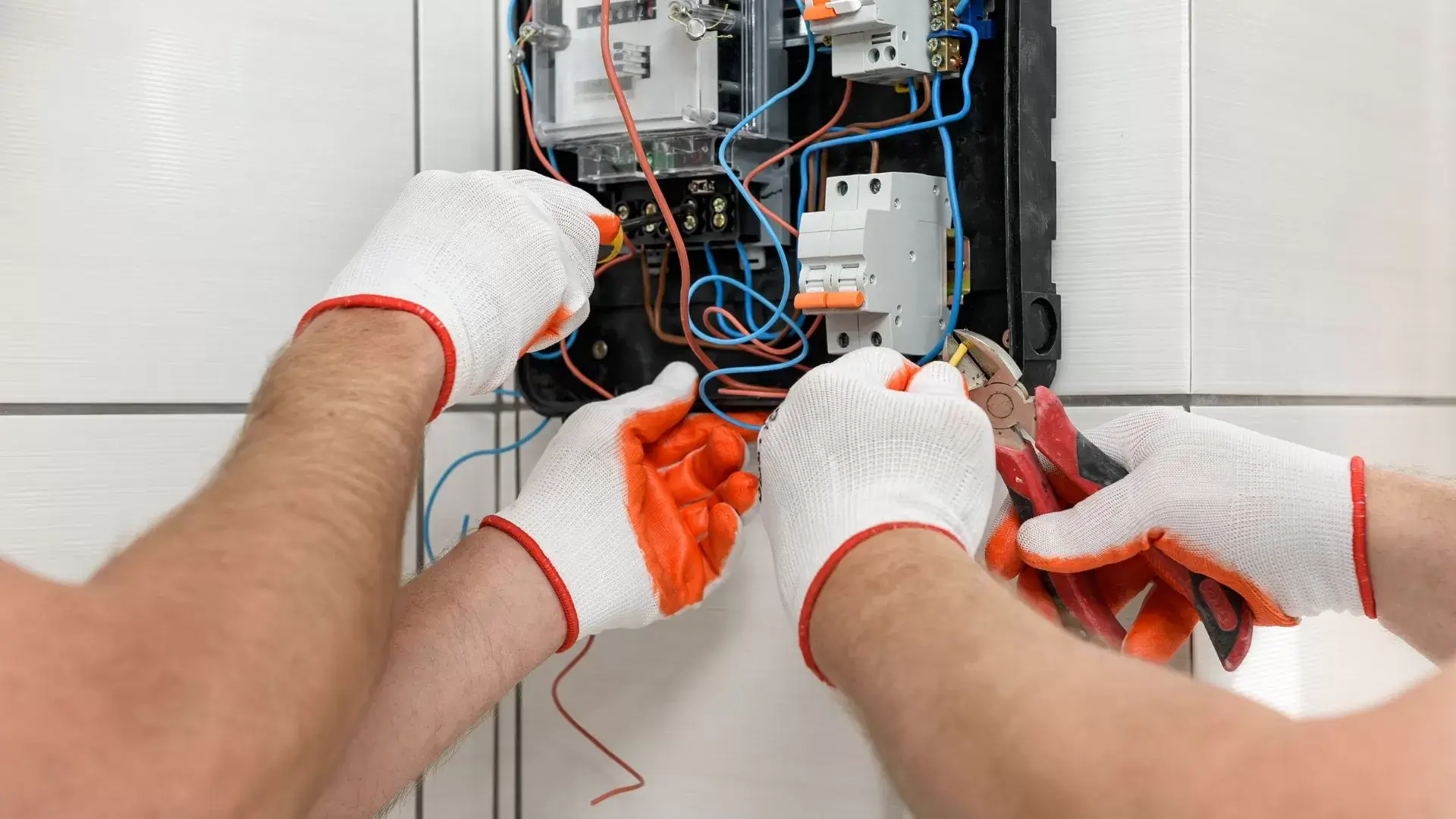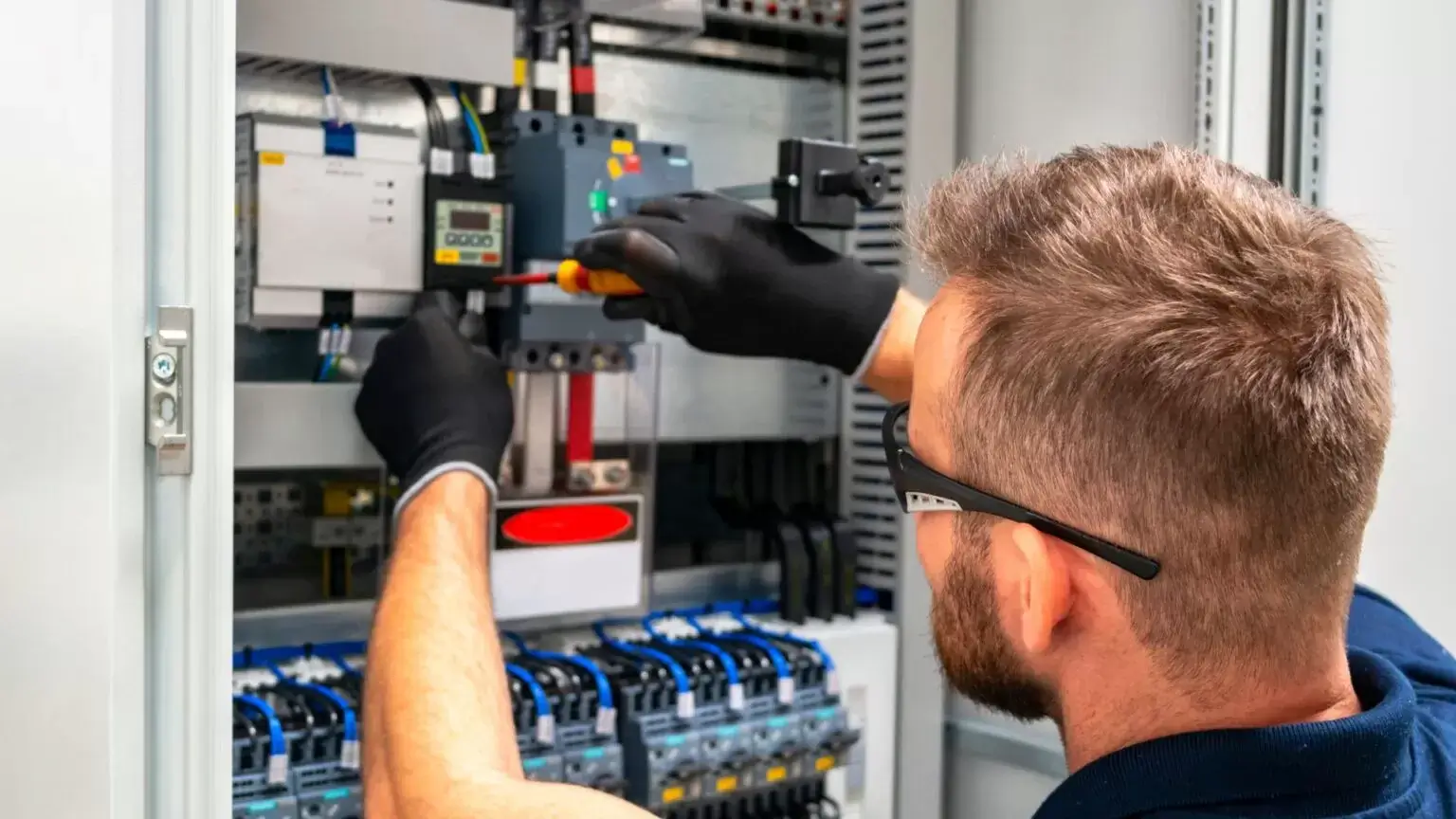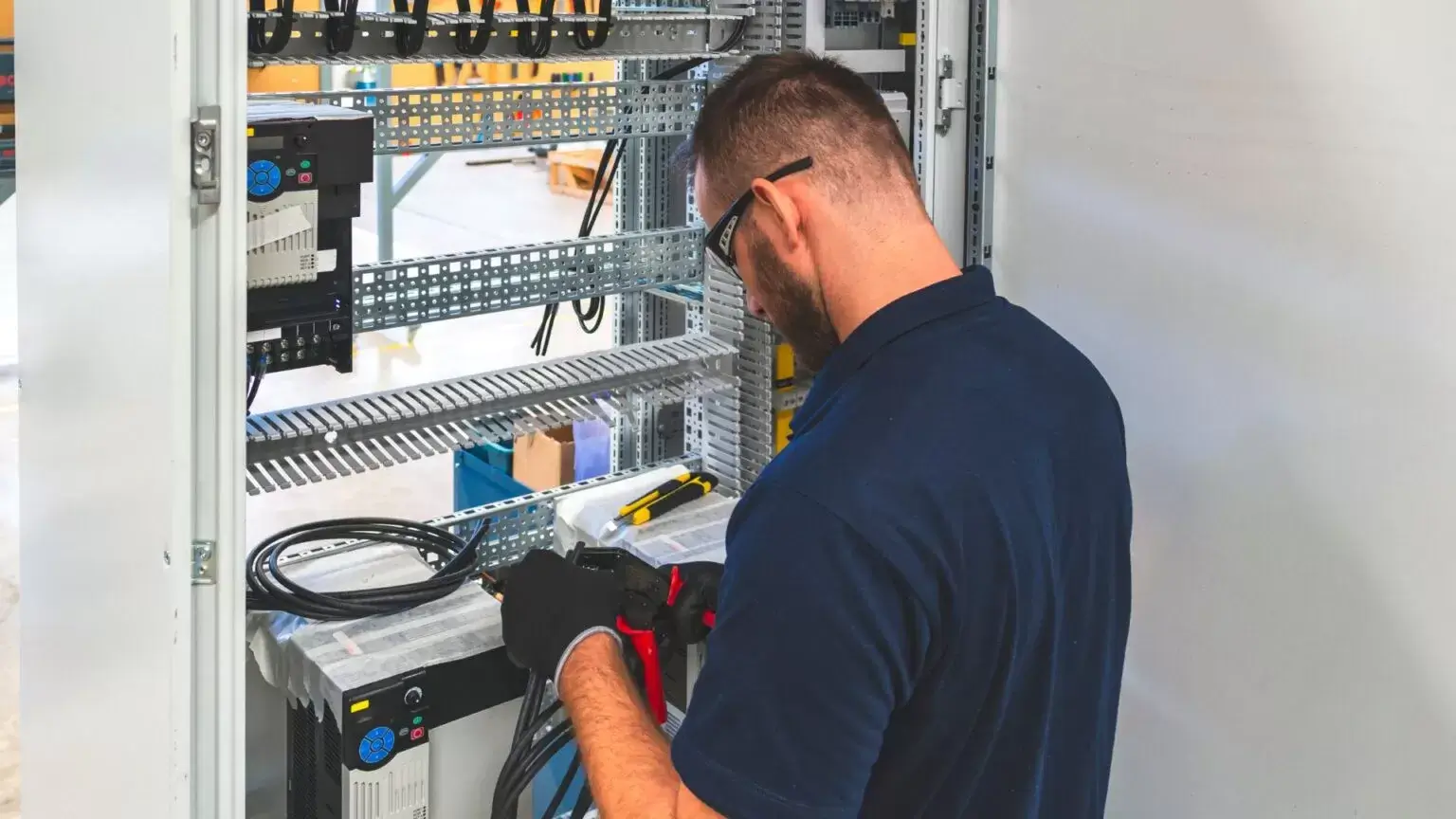Electrical Circuit Panels, Installation and Replacement
iCAN Electricians Services
- Electrical Services
- Aluminum Wire Replacement
- Bathroom Exhaust Fan Installation
- Electrical Circuit Panels, Installation and Replacement
- Electrical Finishing Installation
- Electrical Rough-In Installation
- Electrical Service Panel Upgrade
- Electrical Wiring and Cabling, Installation and Replacement
- EV Charger Installation
- Heated Floor Installation and Replacement
- Home and House Automation Installation
- Inspection and Safety Check, Installation and Replacement
- Light And Blub Fixture, Installation and Replacement
- Motion Sensor Light Installation
- Outlet and Plugs, Installation and Replacement
- Overhead and Underground Electrical Supply
- Pot Lights and Recessed Lighting, Installation and Replacement
- Security Camera Installation
- Smart House Installation
- Smoke and Carbon Monoxide Alarms, Installation and Replacement
- Strip Light Installation
- Bathroom Exhaust Fan Repair
- Electrical Circuit Panels Repair
- Electrical Emergency Repair
- Electrical Wiring and Cabling Repair
- EV Charger Repair
- Home and House Automation Repair
- Light And Blub Fixture Repair
- Motion Sensor Light Repair
- Outlet and Plugs Repair
- Pot Lights and Recessed Lighting Repair
- Security Camera Repair
- Smart House Repair
- Smoke and Carbon Monoxide Alarms Repair
- Strip Light Repair

Electrical Circuit Panels, Installation And Replacement - iCAN Electricians
Have you ever wondered what it takes to install or replace an electrical circuit panel? We’ll cover everything from installation and replacement by iCAN Electricians to tips on how to handle any repairs that might come up along the way.
No matter if you’re just starting out in the world of electricity or are a seasoned veteran, knowledge is power when it comes to taking care of your home’s electrical system. Why working with experienced electricians like iCAN Electricians can make things easier and more reliable. They’ve got years of experience dealing with these types of issues – plus they’ll help ensure that your safety isn’t compromised during the process.

We will explore the basics of installing or replacing an electrical circuit panel as well as some useful advice on how to tackle potential problems down the line. So let’s get started – after all, understanding something means being able to take control over it yourself!
What Is An Electrical Circuit Panel?
Ah, the electrical circuit panel. It’s a mysterious device that can cause so much confusion and frustration for those who don’t know what it is or how to use it. But fear not! We’re here to demystify this important piece of equipment.
At its core, an electrical circuit panel serves as a central hub for all wiring within your home or business. This allows you to connect different appliances and devices while keeping everything properly grounded and safe from dangerous surges in electricity. In short, it’s like having multiple power outlets connected through one main box – allowing you to keep your workspace neat and organized without worrying about tripping over wires! With that said, let’s move on to looking at the various types of circuit panels available.

Types Of Circuit Panels
At iCAN Electricians, we specialize in installing and replacing electrical circuit panels. There are a variety of types of panels available to meet your needs. The most common type is the main breaker panel, which houses the main power source for your home or building. This panel contains breakers that control individual circuits throughout the house, as well as an emergency shut-off switch for safety purposes. Subpanels can be used to provide additional power sources for specific areas within larger buildings, such as workshops or garages. These subpanels also have their own set of breakers that help control electricity usage in certain parts of the building.
Additionally, there are fuse boxes which serve a similar purpose but utilize fuses instead of breakers to protect wiring from overloads. No matter what type you need installed or replaced, our experienced electricians will get it done quickly and safely.
Upgrading these systems provides many benefits; let’s explore this further now…
Benefits Of A Circuit Panel
Installing a circuit panel can provide numerous benefits. Firstly, it helps to keep your electrical system safe and reliable by allowing you to monitor the amount of current being used in each individual circuit. This allows for improved safety as problems like overloading or short-circuiting are minimized. Additionally, having a circuit panel installed also makes troubleshooting easier should any issues arise with the electrical components in your home or office.
Having an up-to-date circuit panel is essential when it comes to ensuring that all wiring and outlets are working properly. It’s important that the correct size breaker box is selected so that the entire system runs smoothly – this will prevent potential damage from occurring due to too little power being supplied to certain circuits. With proper installation, maintenance and regular inspections, you can trust that your circuit panel will be protecting both you and your belongings from electrical hazards such as fire or shock.
Making sure that you have the right type of panel for your needs is key to efficient operation of your electrical system.
How To Select The Right Panel For Your Needs
Well, now that you know the benefits of a circuit panel, let’s talk about how to select one. Selecting the right circuit panel can be tricky and it’s important to make sure you are choosing the right size for your needs. It’s also essential to ensure you understand all safety considerations when installing a new panel.
When selecting the right panel, think about what type of wiring you have in your home or business space as well as whether or not you need additional circuits added on. Consider where to place the panel – making sure there is enough room around it for easy access. Additionally, consider any other options such as getting an automatic transfer switch if power outages occur often in your area. Make sure whatever option you choose meets local codes and regulations before installation begins. Knowing these things will help you pick the best electrical panel for your unique situation.
Safety Considerations For Installing A Circuit Panel
When it comes to replacing or installing a circuit panel, safety should be the priority. We want to ensure that everyone involved in the project is safe. So let’s take a look at some tips to help keep you and your home secure:
* Make sure all power sources are turned off before beginning any work on the electrical system.
* Ensure proper grounding of any new equipment being installed.
* It is recommended that only qualified professionals install a circuit panel.
* Inspect existing wiring for signs of damage such as frayed wires or exposed components before proceeding with installation.
Before starting any job involving electricity, we must always be aware of potential hazards and take necessary precautions to avoid them. Taking these steps will provide peace of mind when working with high voltage systems and allow us to complete our projects safely and efficiently. With this knowledge, we can now move onto discussing how to install a circuit panel step-by-step.
Step-By-Step Guide To Installing A Circuit Panel
A stitch in time saves nine – this adage holds true for many situations, including the installation of a circuit panel. Installing a new circuit panel can be a complicated process that requires careful planning and attention to detail. To ensure success, it is important to take the necessary steps in order to properly install the panel with minimum disruption and inconvenience.
First, you must select an appropriate location for the panel based on factors such as available space and access points. When positioning the panel, make sure there are no obstructions or hazards nearby. Once you have determined where the panel will go, begin by assembling any components needed to complete the job. This includes attaching wires and connecting them securely to their respective terminals before mounting the unit itself onto its designated wall or ceiling surface.
Finally, test all connections thoroughly to ensure everything is working correctly before turning on power supply at your home’s main breaker box. With these simple steps followed carefully, installing your new circuit panel should run smoothly! Transitioning now into tips for replacing an old or damaged circuit panel.

Tips For Replacing An Old Or Damaged Circuit Panel
Replacing an old or damaged circuit panel can be a challenging task. That’s why it’s important to enlist the help of a professional electrician who has experience with this kind of job. With their knowledge, they’ll be able to make sure that everything is done correctly and safely.
Here are some tips for replacing your existing electrical panel:
- Turn off main power source before beginning work.
- Ensure all safety measures are taken while working on the project.
- Make sure the new panel matches up with current wiring configuration in home/building.
- Securely mount replacement panel in place using appropriate hardware and tools.
These suggestions should give you a better idea about what needs to be considered when replacing an old or damaged circuit panel. It will also help ensure that you get the job done right so that you don’t have any issues down the line. Knowing these tips ahead of time will save both time and money during the installation process!
To further protect yourself, it’s best to know common problems associated with electrical panels and how to fix them if something does go wrong during installation or over time after completion of the project. This way, you’ll always be prepared if anything arises unexpectedly during maintenance or repair work at any point in time!
Common Problems With Electrical Panels And How To Fix Them
Electrical panels are a vital part of your home’s electrical system, but they can also present problems. From breaker tripping to light flickering, and even circuit breakers that don’t work, there are many potential issues with an electrical panel that need to be addressed quickly and safely. Fortunately, most of these common issues have simple fixes that we can help you with.
The first step in troubleshooting any issue is identifying the problem; from loose wires to faulty circuit breakers. We have years of experience diagnosing problems with electrical panels so we can identify and fix them efficiently for you. If necessary, we can replace parts or the entire panel if it has become outdated or damaged over time. Our team is highly trained to handle all kinds of repairs and replacements on this equipment safely and professionally.
We understand how important it is for homeowners to have working electricity in their homes at all times. That’s why we strive to provide timely repair services whenever possible so that you don’t have to worry about not having power when you need it most. Moving forward, let’s talk about troubleshooting common issues with home electricity.
Troubleshooting Common Issues With Home Electricity
We’ve all had moments where something just isn’t working right in our home – whether its an appliance, a light switch or even the electrical outlets. It can be frustrating when we don’t know what to do and it’s easy to become overwhelmed by the task of troubleshooting these issues. Fortunately, with some basic knowledge and understanding, you can easily identify common problems with your home electricity and take steps to fix them yourself.
The first step is to check your main circuit panel for any tripped switches or blown fuses. If there are no obvious signs that this has happened, then it could mean that power loss is being caused by another source such as a faulty outlet or wiring problem. In these cases, it’s best to call in an electrician who will have the expertise necessary to diagnose and repair the issue quickly and effectively.
From here, we’ll move into an overview of professional electrician services available for installation and replacement of electrical panels in homes.

Overview Of Professional Electrician Services
When it comes to electrical circuit panels, installation and replacement, there’s no substitute for a professional electrician. They have the knowledge and expertise in working with electricity that is simply not possessed by someone with little or no experience. Professional electricians can safely handle all of these tasks while meeting industry standards.
They are also familiar with local building codes and regulations, so they know exactly how to properly install your panel without any mistakes. This ensures you won’t be running into any problems down the line due to improper installation. Plus, if something does go wrong, you’ll have peace of mind knowing that a qualified electrician was on the job. With all this in mind, it’s clear why hiring a professional electrician is always the best choice when dealing with electrical work. Next we will discuss some of the advantages of hiring one.
Advantages Of Hiring Professional Electricians
Hiring a professional electrician is like having a trusted mechanic for your car. They can spot problems with wiring and circuits quickly, diagnose them accurately, and repair any issues in an efficient manner. With their expertise and experience, they will ensure that the job is done right the first time, saving you both money and hassle.
Professional electricians know how to handle electrical components safely. They are well-versed on local building codes so that your circuit panel installation or replacement meets all safety standards. Additionally, licensed electricians have access to quality materials which helps guarantee the longevity of the project. You can rest easy knowing that your family’s safety is not compromised by inferior products or workmanship.
With these advantages in mind, it’s no surprise why many people opt to hire professionals when dealing with electrical projects around their homes. Moving forward we’ll explore some cost factors associated with hiring a certified electrician.
Cost Factors In Hiring Professional Electricians
When hiring professional electricians, cost is a major factor to consider. There are several factors that can affect the total cost of any electrical project. The size and complexity of the job, as well as the materials needed, will all contribute to the overall price of the work. Additionally, some service providers may offer special discounts or promotions for certain services or projects. It’s important to research these options beforehand so you know what your budget should be for the job.
Working with iCAN Electricians means you’ll get quality electrical services at an affordable rate–no matter how simple or complex your project might be. Our experienced technicians are skilled in providing fast and efficient installations and replacements on both residential and commercial properties. We also provide free estimates up front so there won’t be any surprises when it comes time to pay for our services.
Working With iCAN Electricians
When you’re looking for an experienced electrician to install or replace your electrical circuit panels, trust iCAN Electricians. We make it easy – our team of certified professionals makes it a seamless process from start to finish. Here’s why we’re the best choice:
- We provide superior service that meets all safety standards and regulations.
- Our highly skilled technicians are friendly and knowledgeable, ensuring quality workmanship every time.
- We use only the highest-grade materials and parts to ensure long-term reliability and performance.
- And, most importantly, we offer competitive pricing so you don’t have to break the bank when upgrading your home’s electrical system.
We understand how important it is for your family’s comfort and security – that’s why we take extra care in installing or replacing your electrical panel correctly the first time around! You can count on us to get the job done safely and efficiently, giving you peace of mind knowing that you will be living in a safe environment with reliable electricity powering up everything you need in life!
iCAN Electricians Services
Frequently Asked Questions – Electrical Circuit Panels, Installation And Replacement Near Me
How Often Should A Circuit Panel Be Replaced?
We all know that circuit panels are an essential part of any home or business electrical system. But when it comes to replacement, there’s no one-size-fits-all answer. How often a circuit panel should be replaced depends on several factors, such as the age of the current panel and its condition.
If your existing circuit panel is outdated or damaged in some way, then you should consider replacing it sooner rather than later. An older model may not provide enough protection for your property and occupants from potential hazards like fire or shock due to faulty wiring. It could also be more prone to breakages and malfunctions which can cause costly repairs. However, if your current panel appears to be working properly and is up-to-date with safety standards, then it might still have some life left in it yet so don’t rush into buying a new one unless absolutely necessary!
No matter what kind of issue you’re having with your circuit panel though, iCAN Electricians are here to help. They offer comprehensive installation and replacement services designed to ensure that your electrical system remains safe and efficient at all times – giving you peace of mind whatever the situation may be.
What Is The Difference Between A Circuit Panel And A Fuse Box?
Circuit panels and fuse boxes are two of the most important components in your electrical system. But what sets them apart? To understand the difference, it’s useful to think of electricity like water flowing through a pipe. The circuit panel is like the valve that turns on or off the flow of electricity while the fuse box acts as a safety device – if too much current passes through, it will blow out like a breaker switch, protecting you from an overload.
To illustrate this metaphor further, let me share my experience with replacing a circuit panel for one of my clients. I arrived at their home only to find that they’d been using a single small fuse box instead of a more sophisticated circuit panel setup. As I watched, their lights began flickering due to an overloaded circuit—it was time for an upgrade! After installing a new larger capacity panel with multiple breakers and switches, they were able to breathe easy knowing their home was safe from electrical surges and overloads.
The benefits of having a full-sized circuit panel include:
Safety & Protection:
1. Circuit breakers quickly shut down circuits when there’s an overload or short-circuiting issue.
2. GFCI outlets help prevent electrocution by cutting off power automatically if moisture is detected near wiring.
3. AFCI breakers reduce fire risk by detecting arcing (a potential cause of fires).
Convenience:
1. Separate switches control different sections of your house so you can easily turn them on/off individually without affecting other areas of the home.
2. Some models come with built-in surge protectors which guard against voltage spikes caused by lightning strikes or utility fluctuations —no need for extra plug-ins!
Cost Savings:
1. You won’t have to replace individual fuses each time something trips because there’s less wear and tear on the main unit itself compared to traditional setups where every component has its own breaker switch/fusebox combo installed separately throughout the house.
2. Energy efficiency increases since you can easily monitor how much energy is being used in each area during peak times – leading to lower bills over time!
By investing in a reliable circuit panel with all these features plus regular maintenance checks, you’re taking proactive steps towards ensuring your family stays safe and comfortable at all times – no matter how much current flows through your walls!
What Are The Potential Dangers When Working With Circuit Panels?
When working with circuit panels, there are certain potential dangers that must be taken into account. Electricity is a powerful force and can cause serious injury if not handled correctly. It’s important to understand the risks associated with electrical work so that you can avoid any accidents or damages.
Firstly, one of the most common hazards when dealing with circuits is electric shock. This occurs when someone comes in contact with an exposed wire or other source of electricity, which can result in severe burns and even death if it’s not addressed quickly enough. In addition to this, there’s also the risk of fire due to sparks caused by faulty wiring or overloaded circuits. Lastly, improper installation of panels can lead to structural damage and potentially create dangerous situations for those nearby.
For these reasons, anyone who works with circuit panels should have adequate knowledge and training on how to do so safely and effectively. Always wear protective gear such as gloves, goggles, and insulated clothing while handling live wires, and make sure all connections are tight before turning on the power supply. If necessary, seek professional assistance from iCAN Electricians in order to ensure your safety as well as protect your property from harm.
What Components Are Needed To Install A Circuit Panel?
When it comes to installing a circuit panel, there are certain components that must be in place for the job to go smoothly. It’s important to understand what parts and tools are needed when working with these types of panels so that you can ensure your safety as well as successful completion of the project.
To get started, here is an overview of the essential items required:
Tools & Supplies: Screwdrivers, Wrenches, Drill/Driver, Circuit breaker box,
Parts: Electrical wiring, Circuit breakers or fuses, Outlet boxes,
Other Necessities: Voltage tester, Wire cutters/strippers
With all these supplies and components on hand, one should also have access to basic electrical knowledge or enlist help from someone who does. Having everything organized before starting will make the installation process much smoother. Even if you think you’re up for tackling this sort of task yourself, it is highly recommended to consult an electrician first. Doing so helps guarantee that no technical mistakes occur and that any potential hazards are identified upfront. Working with electricity can be dangerous, so understanding how each step works is key!
Are Circuit Panels Difficult To Maintain?
Maintaining a circuit panel can seem daunting, but it doesn’t have to be. Depending on the setup and size of your panel, there are various steps you need to take in order to ensure that it is running smoothly. It’s important to understand the basics behind how a circuit panel works and how to maintain it properly.
Regular inspections should be done periodically to make sure all components of the system are functioning correctly. Additionally, any wires or connections may need to be checked for loose connections or corrosion which could lead to a fire hazard if not addressed quickly. Additionally, switches and fuses must always remain clear so they can perform their job without interruption or interference. Furthermore, making sure that each breaker has correct amperage ratings will also help protect against potential issues with overloading circuits or power surges. Finally, using surge protection devices at key points along the electrical wiring can help further reduce risks associated with operating an older circuit panel.
Overall, maintaining a circuit panel is not as difficult as one might think – although some basic knowledge about electrical systems is still required in order to do this job safely and effectively. With regular maintenance checks and preventative measures taken , you can keep your circuit panel running optimally for many years. Contact us today to have your Circuit Panel checked today.
